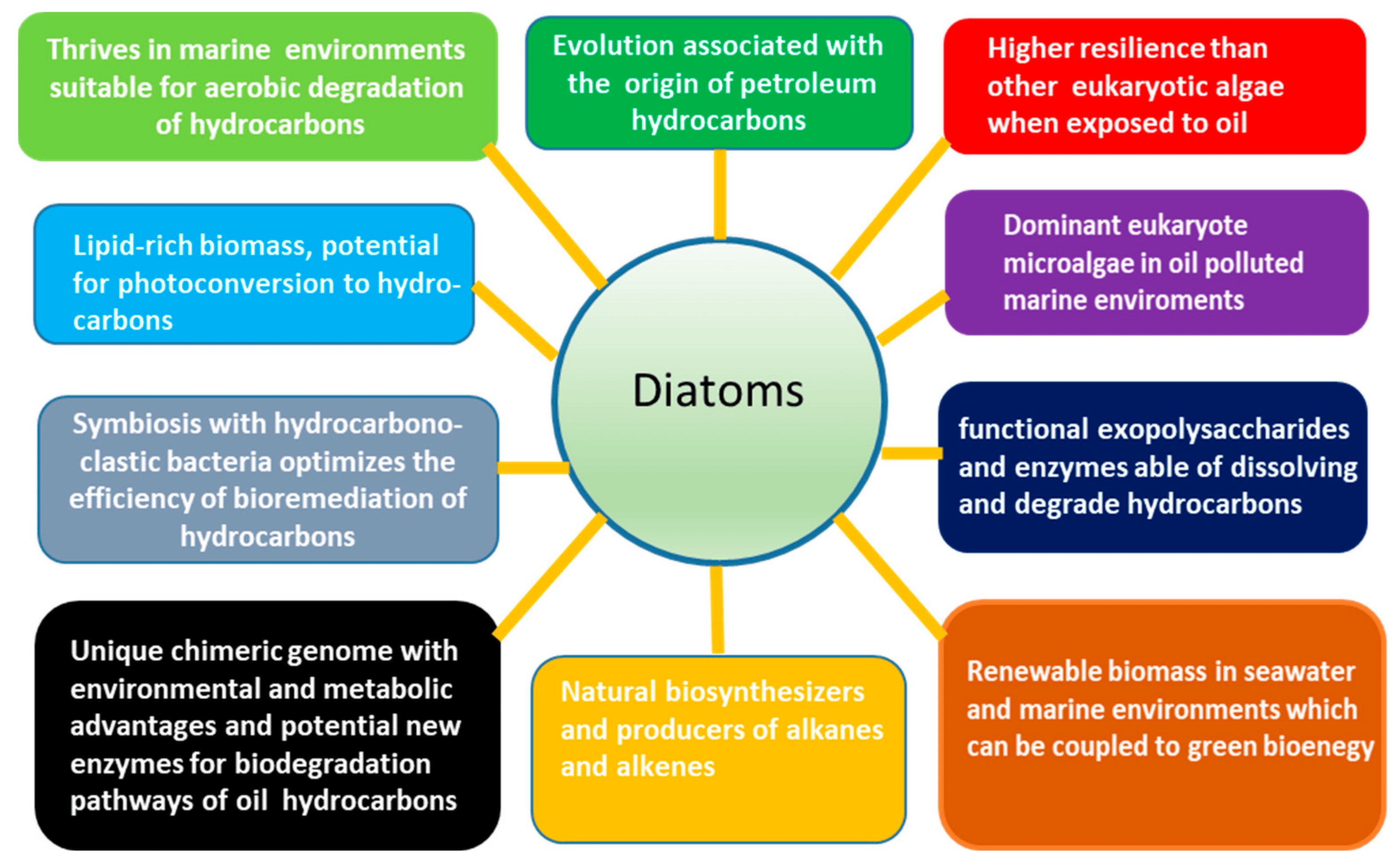figure: Attributes of diatoms for the biodegradation and bioremediation of petroleum hydrocarbons in the marine environment. Diatoms, a type of marine microalgae, offer significant potential for bioremediation due to their unique properties and capabilities: Nutrient Removal: Diatoms can absorb andRead more

figure: Attributes of diatoms for the biodegradation and bioremediation of petroleum hydrocarbons in the marine environment.
Diatoms, a type of marine microalgae, offer significant potential for bioremediation due to their unique properties and capabilities:
- Nutrient Removal: Diatoms can absorb and utilize nutrients like nitrogen and phosphorus, reducing nutrient levels in aquatic environments. This ability helps mitigate eutrophication, a common issue in polluted waters.
- Heavy Metal Sequestration: Some species of diatoms can bioaccumulate heavy metals such as mercury, cadmium, and lead from water. This process helps in cleaning up contaminated sites and reducing toxic levels in aquatic ecosystems.
- Carbon Sequestration: Diatoms are efficient photosynthesizers, converting CO2 into organic biomass. Cultivating diatoms can potentially mitigate climate change by sequestering carbon dioxide from the atmosphere.
- Oil Spill Cleanup: Diatoms produce extracellular polysaccharides that can absorb hydrocarbons. This property makes them useful in cleaning up oil spills by binding and immobilizing oil droplets on the water surface.
- Biological Sensors: Diatoms respond to changes in environmental conditions, making them useful as biosensors to detect pollutants in water bodies.
- Biofuels and Bioproducts: Some diatom species have lipid-rich biomass suitable for biofuel production. Their cultivation for biofuels can offer an eco-friendly alternative to fossil fuels.
Utilizing diatoms for bioremediation requires understanding species-specific capabilities, optimizing growth conditions, and integrating their use into existing environmental management strategies. Research continues to explore and expand the potential applications of diatoms in sustainable bioremediation practices worldwide.
See less
Biotechnological innovations undergo rigorous ethical scrutiny to ensure they are safe, fair, and responsible. Key ethical checks include: Regulatory Approval: Innovations must pass through regulatory bodies like the FDA (U.S.) or EMA (EU), which evaluate safety, efficacy, and ethical implications.Read more
Biotechnological innovations undergo rigorous ethical scrutiny to ensure they are safe, fair, and responsible. Key ethical checks include:
These checks collectively aim to balance scientific progress with ethical responsibility, ensuring that biotechnological advancements benefit society while minimizing potential harms.
See less